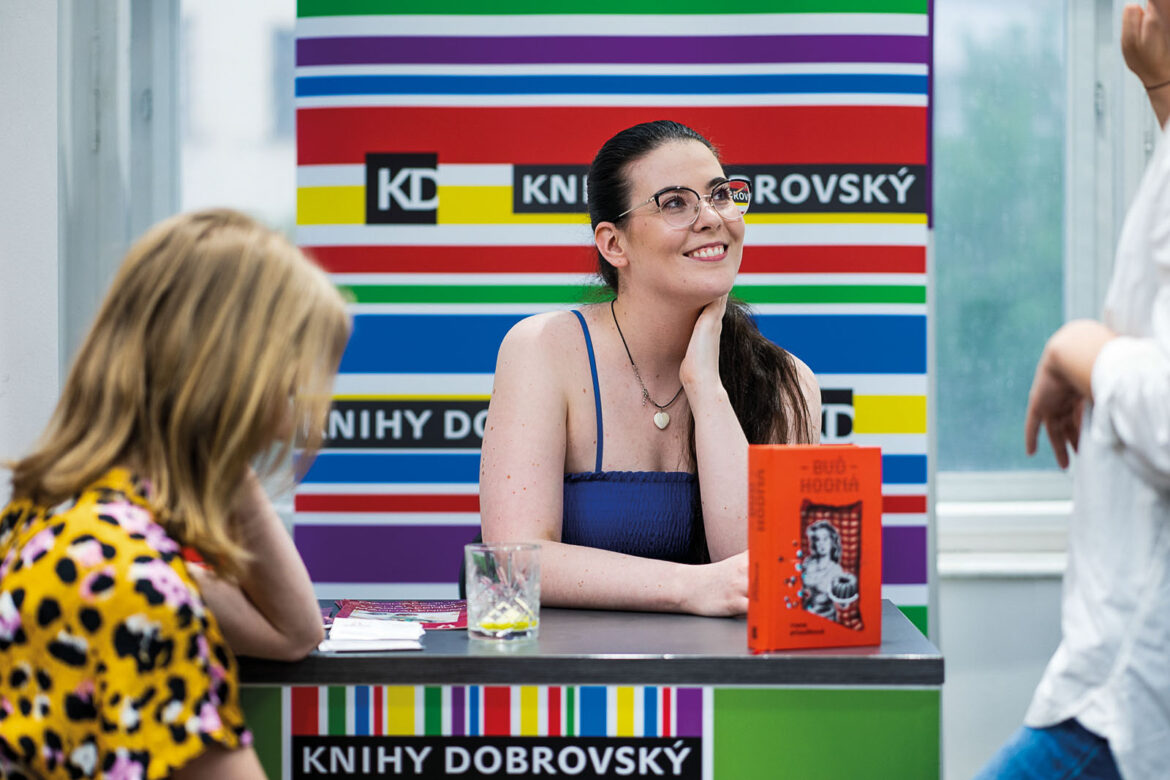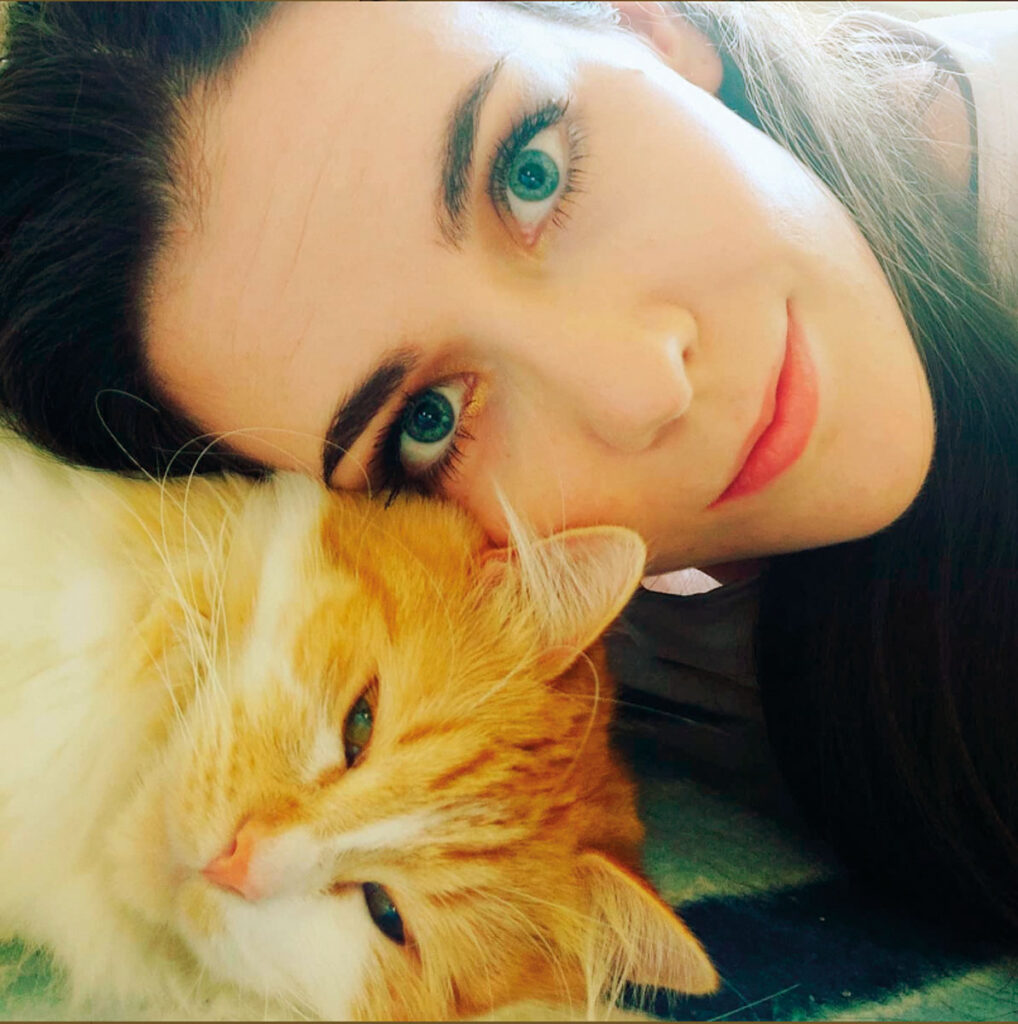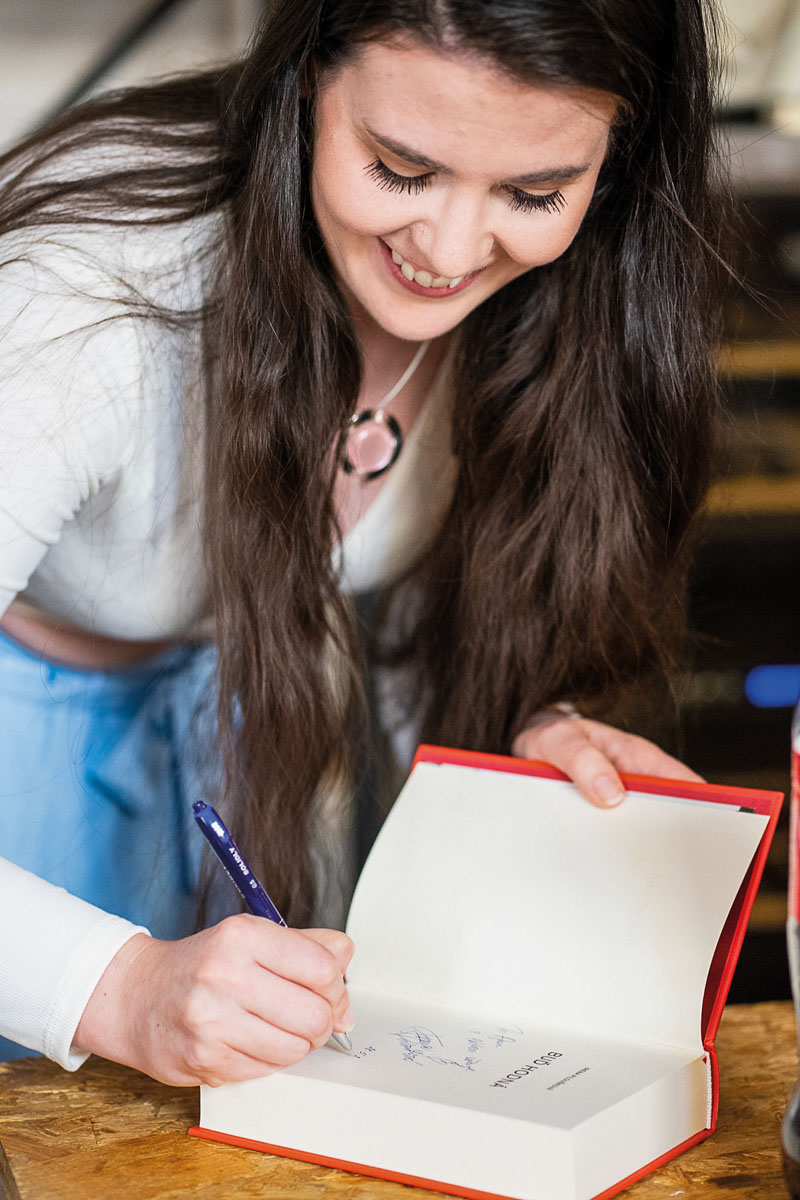
mensanthropist [ men-san-thruh-pist ] noun
a person, who actively participates in fulfilling one of Mensa’s objectives by fostering and utilizing intelligence for the benefit of humanity
You know her. She is strange. Quiet. Unapproachable. Clearly disdainful of your plans, dreams, and personality. She has neither the desire nor the need to linger. She just wants to go home and take care of the household… She is not pleasant. She doesn’t care how you are… But suddenly, she’s gone. And people start to ask. Where did she go? What happened to her? And who was she anyway?
These are excerpts from the blurb that opens the new book by Irena Piloušková, a Mensa member originally from Sokolov, a master’s degree holder in sociology, now living in Prague, a loyal reader of our magazine, who has taken a liking to the term „mensanthropist“ and would like to inspire others towards some mensanthropism. And Irena certainly has something to inspire. Judge for yourself…
Irena, what does Mensa mean to you?
For me, it’s a kind of networking platform. I’m glad that I can meet people who work in different fields. In other social groups, I often felt strange, in Mensa, I don’t feel that way, and it’s nice. A few years ago, I participated in a Mensa bowling event, and it was nice how no one made a fuss when one colleague’s ball rolled so slowly that it started to roll back. Everyone took it very pleasantly, no one teased or laughed. The discussions that took place were very stimulating, but it wasn’t strange to stay silent, which in other groups is considered weird.
I also always feel great joy when I get an email saying that a Mensa member from abroad is visiting and doesn’t have anyone to talk to or a place to stay. I feel connected to the world in some way. When I’m abroad, I tell myself that if something goes wrong, there’s still another line I can reach out to. I don’t see Mensa as an elitist group of people who, based on a test, declare themselves the best in the world, as I often hear in criticism. I just like it.
Does this relate to the fact that you consider yourself a reformed introvert?
I am definitely a reformed introvert. I spent most of elementary and high school with just a few friends. To this day, I know that those eight years at the grammar school were not my best social performance. It wasn’t until university and work that I somehow realized that talking to people isn’t that painful. But my batteries run out very quickly, and after a day of chatting, I usually need a day or two or three alone at home with my projects and thoughts. I really enjoy being silent. It sounds weird, but it’s true.
Do you think it helped that at university, conversations typically started in professional communication and only then drifted elsewhere?
It was more like a fresh start. Eight years at the same school is just a terribly long period of development. When you’re twelve, you’re not the same person as when you’re eighteen, but the group still sees you the same way. At university, I suddenly had the feeling that I could start over and maybe a little less inconspicuously. So, I walked into class and talked to the first people I saw, and I found that they were actually pleasant. They didn’t have any prejudice from the eight years spent with the strange classmate I was, who preferred reading and staying quiet. And it started to feel good.
Then I started working in the media, where communication was necessary, and to this day, I still partly make a living by doing interviews with people. So, it had to develop somehow. But the main positive motivation was that I suddenly found that communicating doesn’t necessarily hurt. Approaching new people was easier for me than dealing with the old guard. That helped me retrain, and quite significantly. People from my grammar school days probably wouldn’t recognize me much.
How did you even come to take an IQ test?
We went to take the test with my former partner, and I took it as an experiential activity. Like when you buy a coupon for a scoop of ice cream on a discount site. After the test, everyone went into the „results“ room. When my boyfriend came out, he was happy to be above average. Finally, I went in too, and the tester said something like, „Well, that went well, so please sit down.“ And he continued, „You know, you made a mistake right at the beginning on something simple, but you got other, more challenging tasks right. Take a look at this.“ It dawned on me that I had just marked the wrong box. That the test could have turned out even better if I had been more careful. Then he congratulated me and asked if I wanted to be part of Mensa, which I enthusiastically accepted, and I went home in a good mood.
I was surprised that it was similar to aptitude tests. Those logical puzzles that I always had right, and it didn’t seem difficult to me. Suddenly, it made sense why others were always amazed at how easily I did them. Entering a group of girls always seemed much harder to me than finding the ninth picture in a series of eight. I almost considered those tests fun, like when someone gives you the chance to solve a crossword puzzle instead of studying. And now, suddenly, I understood that IQ is measured based on those pictures. And that was satisfying.
In your sociology studies, did you encounter that this could also be a handicap in integrating into society?
Undoubtedly. For example, with children. At school, I led clubs, and I often noticed that just as children who are slower are disadvantaged, often those who are quicker are similarly disadvantaged because they get bored.
It was quite noticeable when one of the children was „different,“ but there wasn’t the capacity to address it. It’s not that the teachers didn’t want to dedicate time to individual children and find their various talents. They simply can’t choose the most gifted child in a class of thirty and focus on them the most. Or find each child’s spark and help them develop it.


You wrote your first book when you were fifteen. What prompted you to do that?
Of course, that makes a person even stranger. [laughs] A classmate at grammar school published a fairy tale at that time, and I thought it was very nice. Moreover, I had already started writing my young adult story. I had been working on it since I was fifteen, and it was my little secret. I didn’t talk about it with anyone at all. Then a friend of mine, who was outside of school, came over, I showed it to her, and she said, „Try it! Let’s send it somewhere!“ So, we found a publisher, I sent the manuscript, and it actually got published!
I remember it was very strange. On the one hand, I was happy, it was a significant milestone in my life, something that opened doors for the activities I do now, but at that time, it was more like another sign of oddity.
In one interview, you revealed that the inspiration for your books comes not only from your studied sociology but also from your own life experiences. Does this apply to all three books?
I always try to write about something completely new, and then suddenly realize that I’m writing about something I know intimately. [laughs]
The first book was a novel about anorexia. It was at a time when I was fifteen, and besides being strange in my behavior, I was also the tallest, with the fairest skin, and quite thin. So, I somehow concluded that I could try modeling. There were a few fashion shows, but nothing significant happened. However, I did penetrate that community a little, and I think what I saw there inspired me.
Later, my second book came out, again a novel, this time a story about cyberbullying. Here, I was again somewhat inspired by the fact that my generation experienced the beginning of Facebook. I remember I created a profile because there was an event „Let’s raid McDonald’s,“ and everyone in my class was there. And I wanted to fit in. At that time, it wasn’t so cool to care about mental health and fight against bullying, it was a bit more of a jungle not only in the classrooms but also on the internet.
And now it’s about psychological domestic violence. I may not be the most resilient person, and even my best friend confirms that I can sometimes be destructively empathetic, and unfortunately, I tend to attract narcissistic personality types, and I wallow in it a bit before it hurts me enough to realize I need to get out. So, of course, there had to be some loose inspiration.
Abusers are often more charming than the victim at first glance because they can act very convincingly… And often, the victims are people you wouldn’t expect at first sight.
Irena piloušková
For whom is the book actually written? For potential victims of psychological violence, or for their surroundings to notice that something is happening and that they should help?
Actually, for both of these groups, because the hardest thing is to recognize the pattern, whether you are a victim or a witness. Sometimes it looks like a quarrel, reconciliation, peace, quarrel, reconciliation, peace. And you feel like maybe you’re just oversensitive, that nothing really happened. You can’t quite pinpoint what’s going on because you haven’t been slapped. So, is it violence? Is it not? When you imagine that you’re frustrated, sleep-deprived, and have no control over anything from your diet to your schedule, then logically, sometimes you’re not the most pleasant. That can easily confuse you. You can easily blame yourself for something that’s not your fault.
Moreover, abusers are often more charming than the victim at first glance because they can act very convincingly, they know how to manipulate. That’s why I’d like my book to open the eyes of not only potential victims but also witnesses, or even someone who feels they might be restricting someone, but doesn’t realize how much impact they could be leaving on that person.
I’m very happy that the book has reached far more people than I expected. I anticipated the typical target audience to be women aged 25 to 60. But paradoxically, some of the nicest reviews I’ve received have been from men. So, I guess it fulfilled its purpose. I don’t mean to suggest that only men commit violence. It’s just that my expectations of who would read it were exceeded. The target group of readers is ultimately much broader.
Could this be related to the fact that the book is directly promoted as a novel about psychological domestic violence?
Marketing is now heavily leaning in that direction. Given that I am a sociologist who focused on criminology, the book carries a bit of an informed insight and isn’t just pure fiction. But I’d like to reassure everyone who is afraid of that relatively thick volume that it will be too technical. It’s not. It’s really a story of a person. Of their life and the lives of those around them. And it’s up to each reader to decide which character they take the most from.
When a victim escapes from a toxic relationship, what happens next? Can they break free from the cycle and find someone better?
Domestic violence occurs in what could be called shrinking circles of tension building, explosions, apologies, and reassurances… That’s why it’s so important to educate yourself. If I don’t understand what’s happening to me, I have a much smaller chance of leaving because the feelings of guilt and shame are very strong. Only when I finally understand can I start thinking about what to do next. And there are nonprofit organizations here to help. They’re not just there for a desperate woman to ring the doorbell on a rainy evening with a bag of things and children in tow. That’s how we usually imagine it when we don’t know the system. Experts can help you develop a crisis plan, figure out what to do, how to prepare for it, how to leave, how to continue, to make it as safe as possible for you. Just the consultation work alone is incredibly important because the victim suddenly doesn’t feel so alone.
Specifically, my book is supported by ROSA – a women’s center in Prague and Magdalenium in Brno. Several readers have already reached out to me for help. While I can’t personally advise them from my „position,“ I can provide them with a contact for an organization. While I’m glad that readers contact me because my book touched them so personally that they’re willing to change what’s happening to them, I’m also saddened by how widespread domestic violence is. And often, the victims are people you wouldn’t expect.
What happens to the tyrant when the victim leaves? Don’t they just find someone else? What can be done about it?
It’s terrible, but there’s not much that can be done. How can you forbid people from secretly and unprovably treating each other badly and repeating it with partner after partner?
There is an intergenerational transmission. We simply perceive and adopt certain patterns at home. And it applies not only to abusers but also to victims. The only long-term solution is education so that we can break that intergenerational transmission a bit. And so that we can help those around us and ourselves. When young people start to realize what’s happening in their homes, they might be able to function more consciously in their relationships later on. But that’s a longer discussion. Declaring that every child from a family where domestic violence occurs will automatically become an abuser or a victim in the future makes, of course, no sense.
So, you’re actually helping to raise awareness by writing books that hopefully are also readable. In your latest book, you also touch on intergenerational transmission, right?
Yes, that’s an important part of my book. That’s why I followed the main character from early childhood, from first grade. In the end, readers get the reward of seeing all the little seeds I planted at the beginning gradually grow. The most important thing for me was to show where such little things start and how it happens that you don’t really realize what kind of mess you’re in. Until suddenly, when it’s too much, you might realize and think, „Damn it! How did I get here?“ I also wanted to point out that toxic relationships aren’t just about a partner. You can have a toxic relationship with a mother, a brother, a grandmother, a son…
In one interview, you pointed out that people tend to judge others without knowing enough about them. That reminds me of Amelie from Montmartre. Do you have a personal connection to this or any other iconic film?
I think of A Man Called Ove by Backman. We know it from the cinema as A Man Called Otto, but the book is even better. It’s about a grumpy old man who terrorizes the street with his rules, keeps track of who parks where, lets everyone know they can’t even take care of their own driveway, and scolds you when you greet him. His gentle side appears when the new neighbor simply doesn’t give up and wants to get to know him. That’s my kind of hero, someone who has been through a lot and actually has a good heart, it just isn’t visible at first glance.
My main character Dana is someone you don’t really want to talk to in late adulthood. She’s just a grumpy neighbor, an unpleasant woman in line. But for me, unsympathetic heroes are the most sympathetic because we might just not understand them.
Besides writing, I heard you also like to paint. How do you combine the two?
I really love to draw and paint; I even bought a graphic tablet and took a course in digital painting with illustrator Bára Balgová, who, by the way, illustrated the cover of my third book and became my close friend. I got so hooked that, of course, I immediately had to turn it into a job. I’ve already managed to, for example, illustrate a magazine cover. And as it picked up, I had so much drawing to do that I got back to writing. My creativity wants to fly in every direction, which, of course, you can’t do all day, and sometimes I have a tendency to overwhelm myself. But I’m looking forward to illustrating something again.
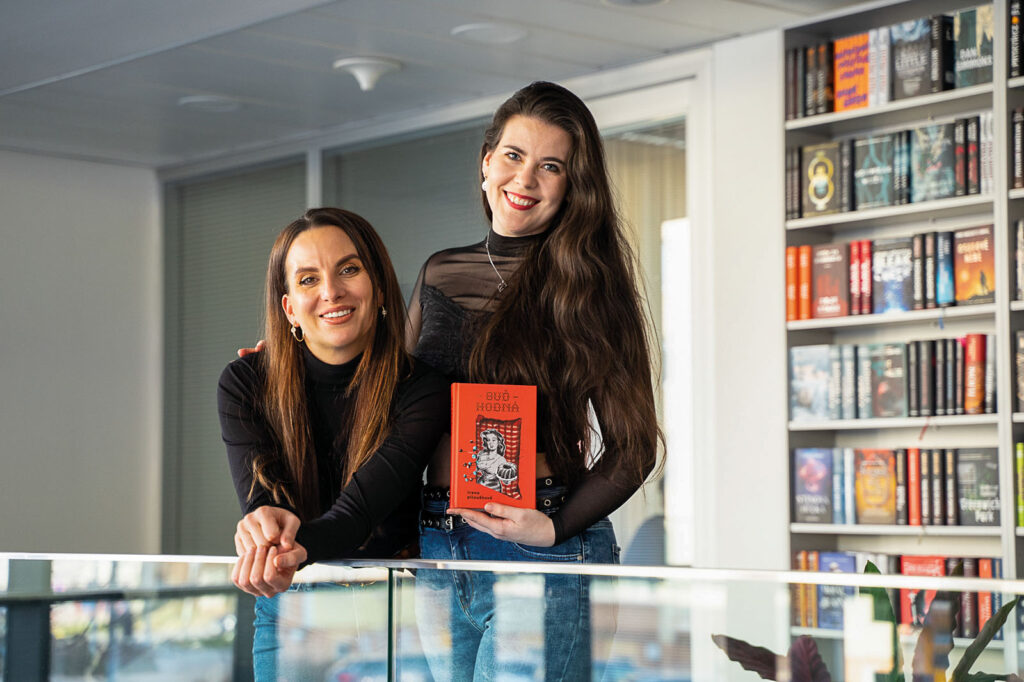
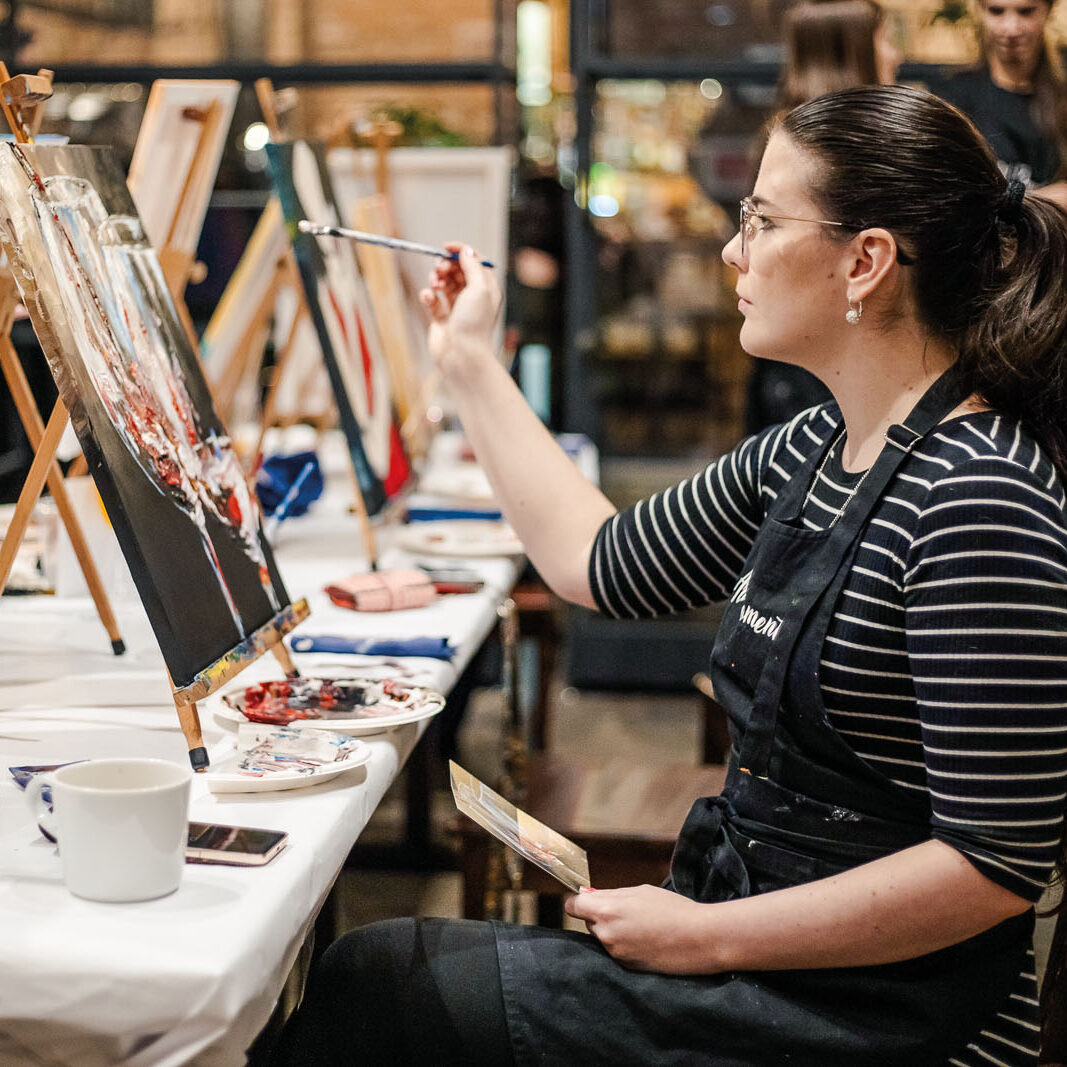
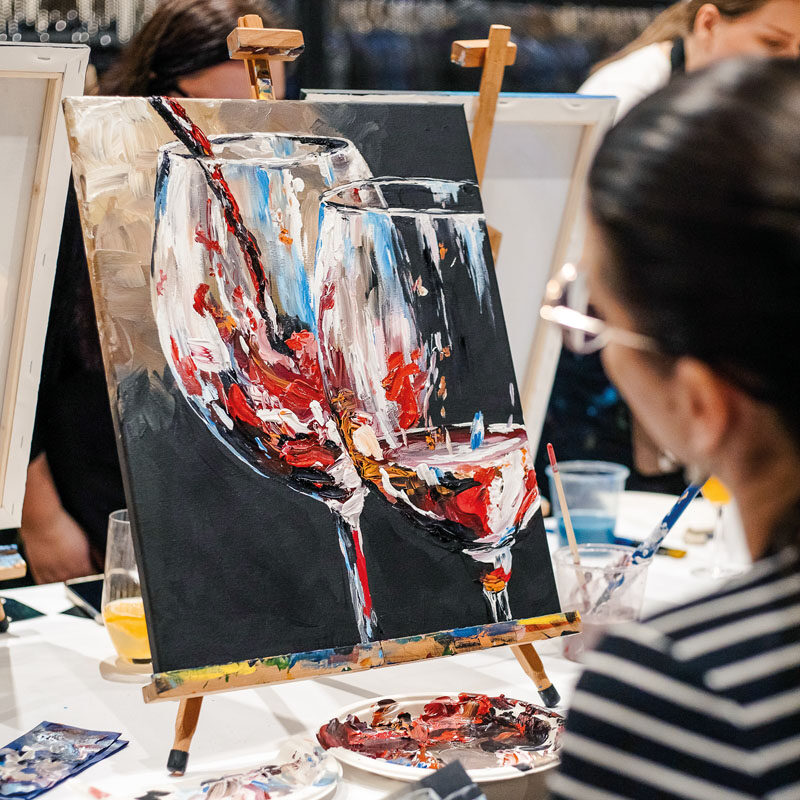
You also mentioned working in the media. I know you write scripts and work on some TV shows, but I couldn’t find much about this side of you. What exactly do you do on television?
In television, I’m often anonymous and in the background because some projects don’t have credits, they don’t mention the screenwriter or dramaturg. Others do, but you might not google them because they only appear at the end of the show and don’t get written anywhere else. Few people know that even interviews with real people need a screenwriter, someone who talks to them in advance, writes it out for the host, or for filming illustrative shots, etc. So, I’m behind a lot of these subtle activities where my name isn’t as prominent as it is here on the book cover. It might flash by at the end, where you’ve already gone to get a snack instead of watching the credits. But that doesn’t bother me at all. What’s important to me is that I enjoy it. And unlike the presenters who are in front of the camera, I can look terrible behind it when I’m having a bad day! [laughs]
Do you see this part more as a livelihood, or do you think you can have a deeper impact there too?
If someone pays attention to something that came out of my work, I believe it gave them something. Even if it was just a few minutes of rest and peace. I’ve never written anything I’d be ashamed of or that would twist my moral hands. I like showing things that can motivate, inspire, educate, or just entertain. That’s why I really enjoy interviews.
What I really appreciate is that I don’t go to work as a punishment. I love the projects I work on, also because I’ve met a lot of people there whom I wouldn’t have had the chance to know otherwise – like my friend and the godfather of my latest book, Honza Musil. When I was writing for television, I saw people like Jan Čenský, Dana Morávková, Libuše Švormová, and others performing in my scripts. I’ve written tons of pages where no one ever mentions my name, and I don’t mind. Then, once in a while, a nice project comes along where my name is included, and I’m grateful for that.
You’re also involved in some nonprofits. Is this something from another field, or is it related to what you write about?
I wouldn’t call filling a car with food for a shelter and delivering it an involvement. I’d like to believe that everyone is doing something for the world. I currently actively support nonprofits that focus on victims of domestic violence. Interesting organizations have been part of my activities since university because that’s when you probably have the most time and opportunities to look around the world. I still draw on those experiences. For example, I know how things work in a daycare center for people with disabilities, I tried riding with caregivers to clients, I had the opportunity to peek behind the curtain at a pedagogical-psychological counseling center. I also greatly appreciate the project on the quality of life of citizens in the Czech Republic, where I worked as a research assistant during my studies. I think that for a writer, editor, or anyone working in the media, it’s not so much about studying the media themselves, but about having as broad perspective as possible and knowing what I’m writing about. Because if I don’t know what I’m writing about, people will notice.
What do you do when the writing, painting, work is done, and it’s time for a bit of fun?
Even though I’ve been making a living from writing for about seven years, it’s still my biggest hobby. So, when I happen to have some free time and my brain isn’t completely drained from work, I go and write a new book because it relaxes me. I live in my own world, and suddenly I realize that five hours have passed, and I don’t even know how. And it’s really nice. Then, of course, there are the usual things like friends, movies, my two cats, drawing, and sometimes yoga for clumsy beginners like me. It would be nice to practice it more often because it helps both my body and my soul. But in this regard, I’m sometimes a terrible procrastinator.
What do you think people should do with intelligence?
I think the decision is a private matter for each person. If someone is beautiful, it’s not their obligation to become a model. But they also shouldn’t make themselves look bad to make others feel better. They can do what fulfills and entertains them. Personally, I must say that the world that somewhat got in my way as a child and isolated me is now enriching for me, as I understand myself a little better, and I enjoy delving into it. And if I can delve into it in a way that has some impact, then it simply makes me feel good.
Do you have any ambition to expand your impact even further? Perhaps getting your books translated into other languages?
That would be very nice. I don’t yet know how to do it. If we have any publicists or publishers abroad in Mensa, I would love to talk to them about it because I think this topic would paradoxically resonate even more with a foreign audience than a Czech one. The Czech audience sometimes still tends to look at things like going to a psychologist or mental hygiene with a bit of disdain. On the other hand, doing work where it is most needed is probably more important. But I’m honestly glad when I look to the east that we’re not doing too badly. And if my book were published in Poland, it would make me very happy…
